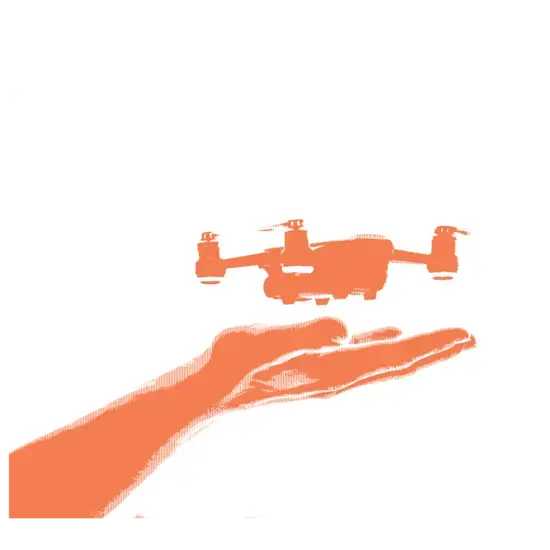We seek applications for our reporting initiative focused on AI and surveillance technologies and their impact on communities around the world. We value accountability and data reporting, collaborations, and cross-discipline approaches. Staff and freelance journalists are eligible.
GRANT OVERVIEW
Note: This is a reporting grant to cover the hard costs of in-depth reporting projects. This is NOT the same as our AI Accountability Fellowships.
This grant is open to journalists worldwide.
Governments and corporations use AI technologies to make life-changing decisions for millions of people – in policing, medicine, social welfare, the criminal justice system, hiring, and more. How do these systems work? What data do they rely on? Who benefits from the technology? And who gets hurt?
"Technology has this aura of infallibility to it. There's this idea of techno-solutionism. But every time you look, you have to say, 'what are the impacts of this?'"
JOANNE CAVANAUGH SIMPSON
2021 Pulitzer Center AI Accountability grantee
In recent years, the Pulitzer Center has invested in several in-depth, high-impact reporting projects documenting the opportunities, harms, and regulatory and labor issues surrounding artificial intelligence systems. Here are a few examples for inspiration:
- AI Colonialism | Karen Hao, Nadine Freischlad, Andrea Hernández
- India’s Gig Workers and Algorithms | Varsha Bansal
- State of Surveillance | Joanne C. Simpson
- Unlocking Europe's Welfare Fraud Algorithms | Gabriel Geiger
- Who’s Watching? How Governments Used the Pandemic To Normalize Surveillance | Victoria Kim
- The Twisted Eye on the Sky Over Buenos Aires | Karen Naundorf, Sarah Pabst
- Tracked | Garance Burke
- There Goes the Neighborhood | Lam Thuy Vo
If you would like to learn how these projects were done, please explore the detailed blueprints our grantees and fellows have shared here.
WHAT WE'RE LOOKING FOR
We welcome in-depth stories that explore with nuance how AI systems are designed, sold and deployed in communities around the world. We value reporting that centers on the people that are directly impacted by automated systems, as well as solutions-oriented stories. We encourage applications for all formats of reporting and also on lesser reported topics, including:
- AI industry supply chains
- Procurement processes for algorithmic and surveillance systems
- Environmental impacts of AI
- AI & disinformation networks
- AI warfare
- AI regulation and governance
Transparency and governance is a cross-cutting theme for all of our focus areas. We seek to support deep dive reporting projects that follow the money across borders; shed light on opaque and harmful supply chains; and investigate the systems, organizations, and people that enable corruption.
We particularly welcome applications from the Global South and seek reporting from Africa, Latin America and South and South East Asia. We are also interested in receiving proposals for collaborative reporting projects by teams of reporters working on AI accountability stories.
Proposals should include detailed distribution plans and letters of commitment from outlets where the stories will be published. The Pulitzer Center also encourages creative forms of content distribution and audience engagement beyond story publication. If you have ideas and strategies for engaging diverse audiences with your reporting project, please include them in our proposal submission form.
The AI Accountability Network is funded with the support of the Open Society Foundations (OSF), Wellspring Philanthropic Fund, Luminate, and individual donors and foundations who support our work more broadly.
WHAT WE DON'T FUND
To save our grantees and staff time, we thought it would be helpful to outline editorial products and project expenses we don’t fund:
- Books (we can support a story that might become part of a book, as long as the story is published independently in a media outlet)
- Feature-length films (we do support short documentaries with ambitious distribution plans)
- Staff salaries (with the exception of some of our yearlong fellowships)
- Equipment purchases (equipment rentals are considered on a case-by-case basis)
- An outlet’s general expenses (for example, rent, utilities, insurance)
- Seed money for start-ups
- Routine breaking news and coverage
- Advocacy campaigns
- Data projects aimed solely at academic research. Data should be developed to enhance/support journalism.

